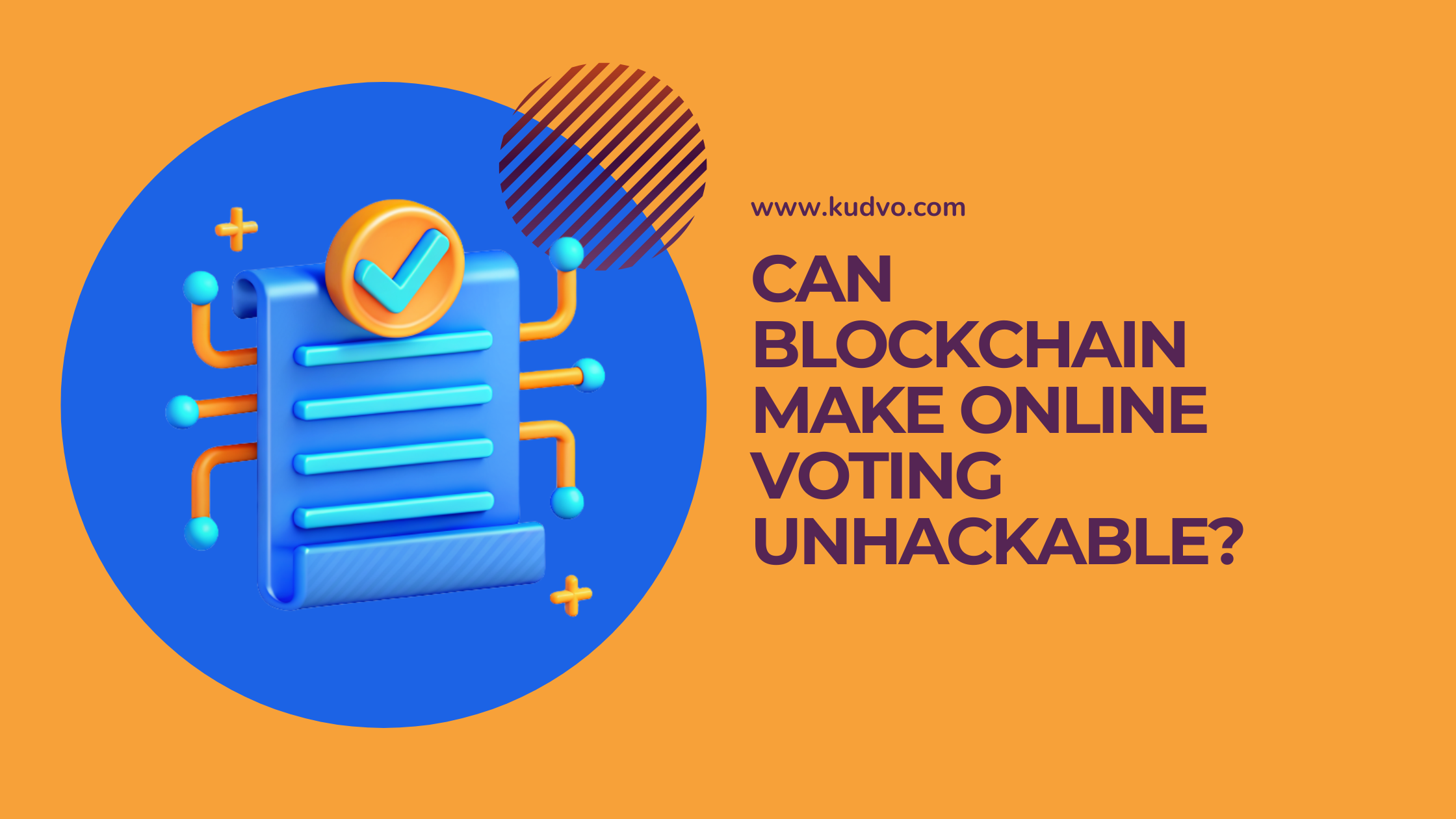Can Blockchain Make Online Voting Unhackable?
Introduction
Imagine being able to vote securely from your couch—and knowing your vote can’t be hacked, changed, or lost. Sounds futuristic? With blockchain technology, that future might be closer than we think.
As countries explore online voting, the biggest roadblock remains security and trust. That’s where blockchain comes in—offering a potential solution to election fraud, manipulation, and lack of transparency.
In this post, we’ll break down how blockchain works in the context of elections, examine its benefits and limitations, and help you understand whether it truly holds the key to unhackable voting.
This article is brought to you by www.kudvo.com, your go-to source for digital democracy insights.
What Is Blockchain and Why Use It for Voting?
At its core, blockchain is a digital ledger that records transactions (like votes) in a secure, tamper-proof, and transparent way.
Key Features That Make It Appealing for Voting:
Decentralization: No single point of failure or control.
Immutability: Once recorded, votes can't be changed or deleted.
Transparency: Every action is traceable and verifiable.
Security: Cryptographic techniques protect data and identity.
In an election, each vote could be a block on a chain—making fraud much harder and results more transparent.
Benefits of Blockchain in Online Voting
Let’s look at how blockchain addresses major voting concerns:
1. Tamper-Proof Records
Votes stored on a blockchain can’t be altered without altering every other block, which is virtually impossible across a decentralized network.
2. End-to-End Verifiability
Voters can verify their vote was counted without revealing their identity. This builds trust without sacrificing privacy.
3. Real-Time Transparency
Election officials and watchdogs can monitor results in real time, spotting anomalies faster.
4. Reduces Human Error and Interference
Since blockchain systems are automated and transparent, they reduce opportunities for manual mistakes or insider tampering.
Case Study:
In 2019, Utah County, USA, used a blockchain-based mobile voting app for overseas voters during a municipal election. Over 150 votes were cast, and post-election audits confirmed the system's integrity.
Challenges and Limitations of Blockchain Voting
Blockchain isn't a silver bullet. Here’s what still needs addressing:
1. Device Security
If a voter’s phone or computer is infected with malware, blockchain can't protect the vote from being altered before it's cast.
2. Privacy vs. Transparency
Public blockchains are transparent—but how do you ensure privacy while making votes auditable?
Solutions: Use zero-knowledge proofs or homomorphic encryption to validate votes without exposing personal data.
3. Scalability & Cost
Blockchain networks can be slow and expensive, especially at national election scale. Ensuring fast, smooth voting for millions remains a hurdle.
4. Digital Divide
Blockchain voting requires internet access and digital literacy—not always accessible to rural or older populations.
What Would a Blockchain Voting System Look Like?
A secure blockchain voting system might include:
Digital IDs for voter authentication.
Secure apps for casting and verifying votes.
Multi-node verification to record and confirm results.
Public audit tools that show anonymized vote counts in real time.
Such systems would also need legal frameworks, regulatory oversight, and third-party audits to maintain integrity.
Conclusion
So, can blockchain make online voting unhackable?
Not entirely—but it gets us closer.
Blockchain offers huge potential for security, transparency, and voter trust, but it’s not without its challenges. For blockchain-based elections to work, they must be paired with secure devices, voter education, and robust privacy protections.
Digital democracy is coming—blockchain might just be the foundation it’s built on.
To stay ahead of the curve on online voting tech, visit www.kudvo.com for more articles, tools, and insights into the future of voting.
